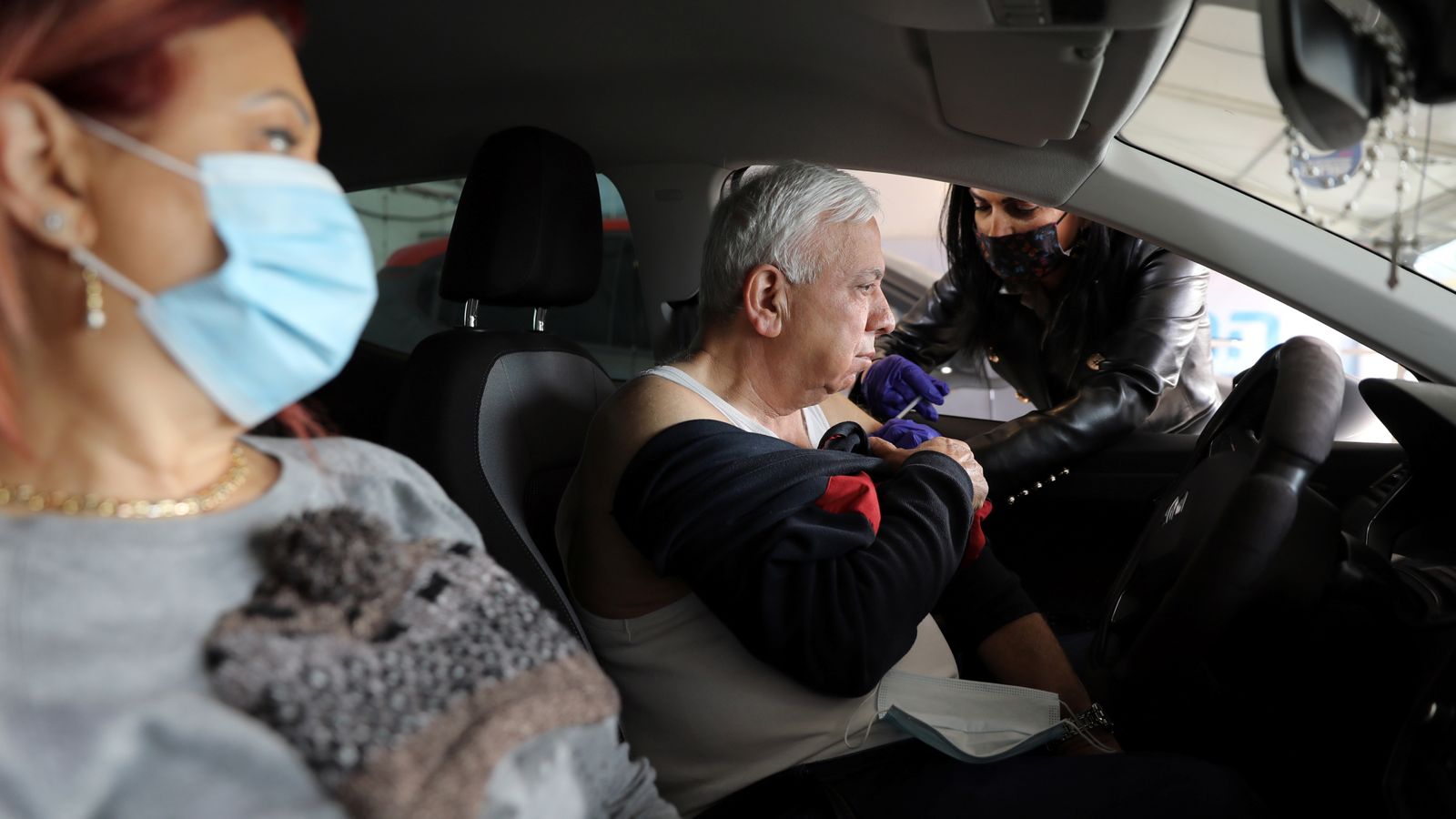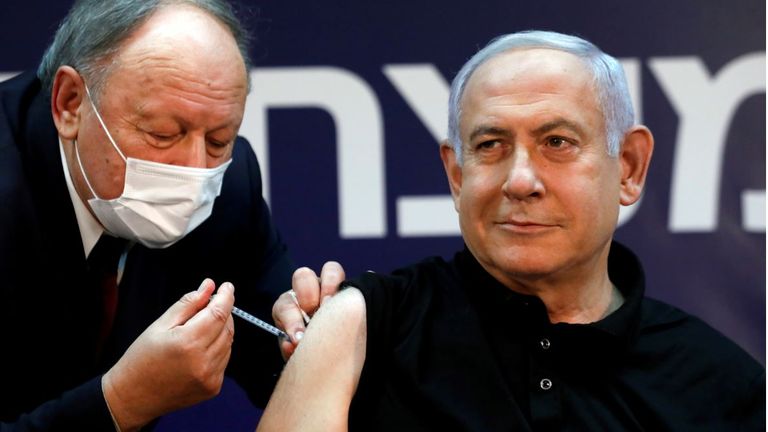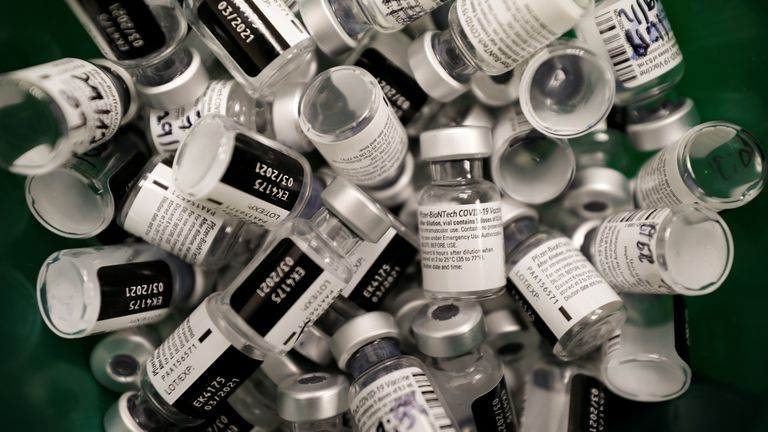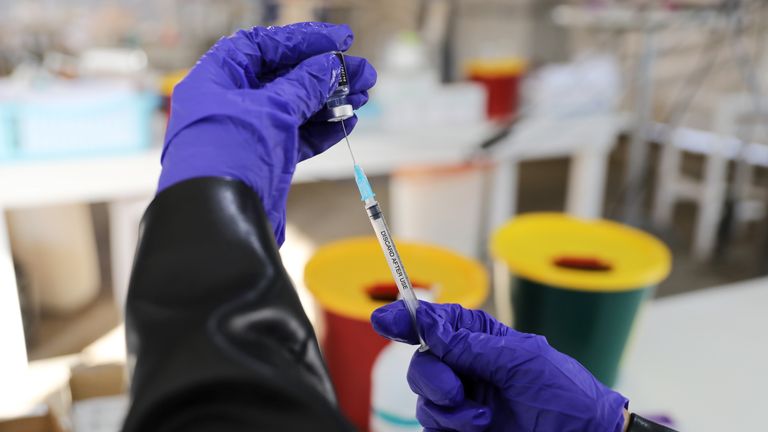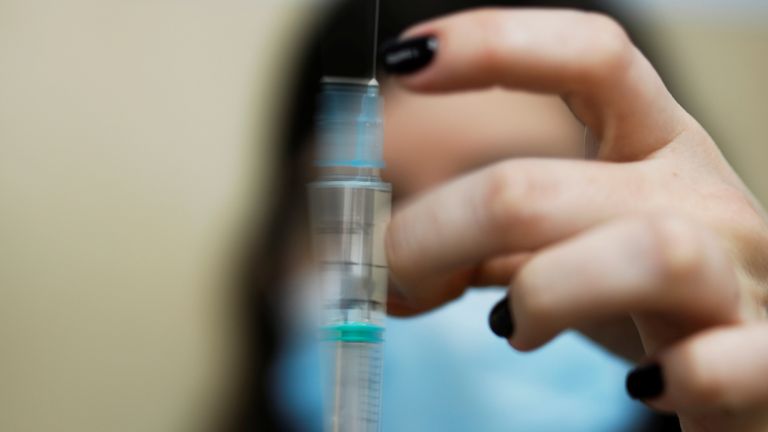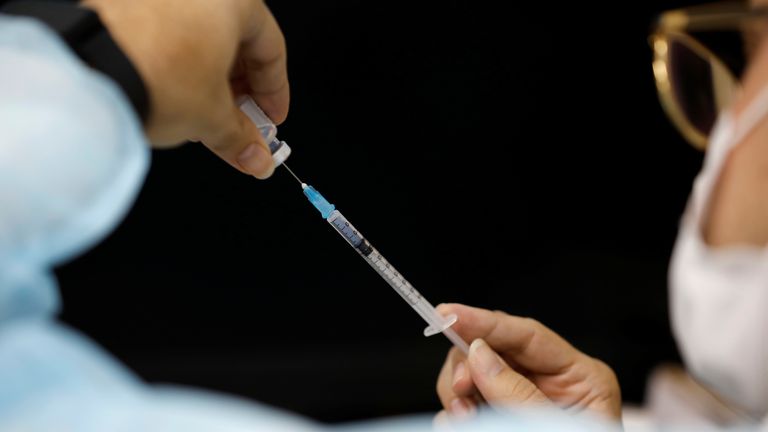Benjamin Netanyahu has blamed the “British mutation” of COVID-19 for a big spike in coronavirus cases in Israel.
The Israeli prime minister said the pandemic was “spreading at top speed with the British mutation” as his government placed the country under stricter lockdown measures for the third time.
“It [the British mutation] has reached Israel and is claiming many lives. We need to impose a full lockdown immediately,” said Mr Netanyahu.
Health minister Yuli Edelstein echoed the prime minister’s comments, warning that the country was in the midst of a worrying new outbreak with the infection rate double what it was at the start of the last national lockdown in September.
The country currently has 58,932 active coronavirus cases and has recorded 3,496 related deaths – and hospitals are again close to being overwhelmed.
Speaking on Israeli radio, Professor Dror Mevorach, director of the COVID-19 ward at the Hadassah Hospital Ein Kerem in Jerusalem, said: “The situation is truly a state of emergency. The disease is spreading at a speed that we’ve never seen before.”
On Monday, 8,368 people tested positive, with the infection rate standing at 7.4% and 828 people said to be in a serious condition. More than 200 of those are using respirators.
These are worrying numbers for a country with a population of just over nine million.
The Israeli cabinet has now approved the third national lockdown which will include the closure of schools and workplaces.
All schools will move back to online learning and only workplaces considered to be essential will remain open.
Subscribe to the Daily podcast on Apple Podcasts, Google Podcasts, Spotify, Spreaker
Travel in and out of the country will also be severely restricted.
People who had bought an air ticket before the lockdown went into effect will be allowed to travel. But new travel plans would be subject to specific government approval.
It is understood that all incoming travellers will again be required to quarantine in state-run facilities until a negative coronavirus test has been produced.
The lockdown is expected to last at least two weeks. However, the government is expressing optimism that this is the final hurdle before the country defeats the virus.
An extraordinary rollout of the Pfizer vaccine, coupled in the coming days by the approval of the Moderna vaccine, has put Israel ahead of any other country in its vaccination programme.
Mr Edelstein said that nearly 1.5 million people had now been vaccinated with their first dose, including more than half of those considered to be in the high-risk categories.
However, shortages of the Pfizer jab have forced a temporary suspension of the programme. The health minister said it would resume when a sufficient amount of the Moderna vaccine arrives in Israel.
Separately, a row continues over what responsibility Israel has to share its vaccine supply with Palestinian communities in the West Bank and Gaza.
As an occupying power, Israel does bear a responsibility under the 4th Geneva Convention (Article 56) to provide healthcare to people in areas it occupies.
However, a condition of the Oslo Peace Accords between Israel and the Palestinians placed the responsibility for healthcare on the Palestinians.
And while Israel is facing legal and moral questions over the issue, Sky News understands that the Palestinian leadership in the West Bank and in Gaza have not yet asked, through official channels, for Israel to help with any vaccine procurement.
Speaking to Sky News, Dr Ali Abed Rabbo, the Palestinian Health Ministry’s director of preventative health said that a formal request to Israel was not necessary because as an occupying power, Israel is obliged to help.
In the West Bank there are 9,264 active cases and 1,239 people have died there.
But Dr Rabbo said that the lockdown had worked and ICU capacity was encouragingly low at 16%. In Gaza, there are 9,308 active cases and there have been 404 related deaths.
